What weapons are being given to Ukraine by the UK?
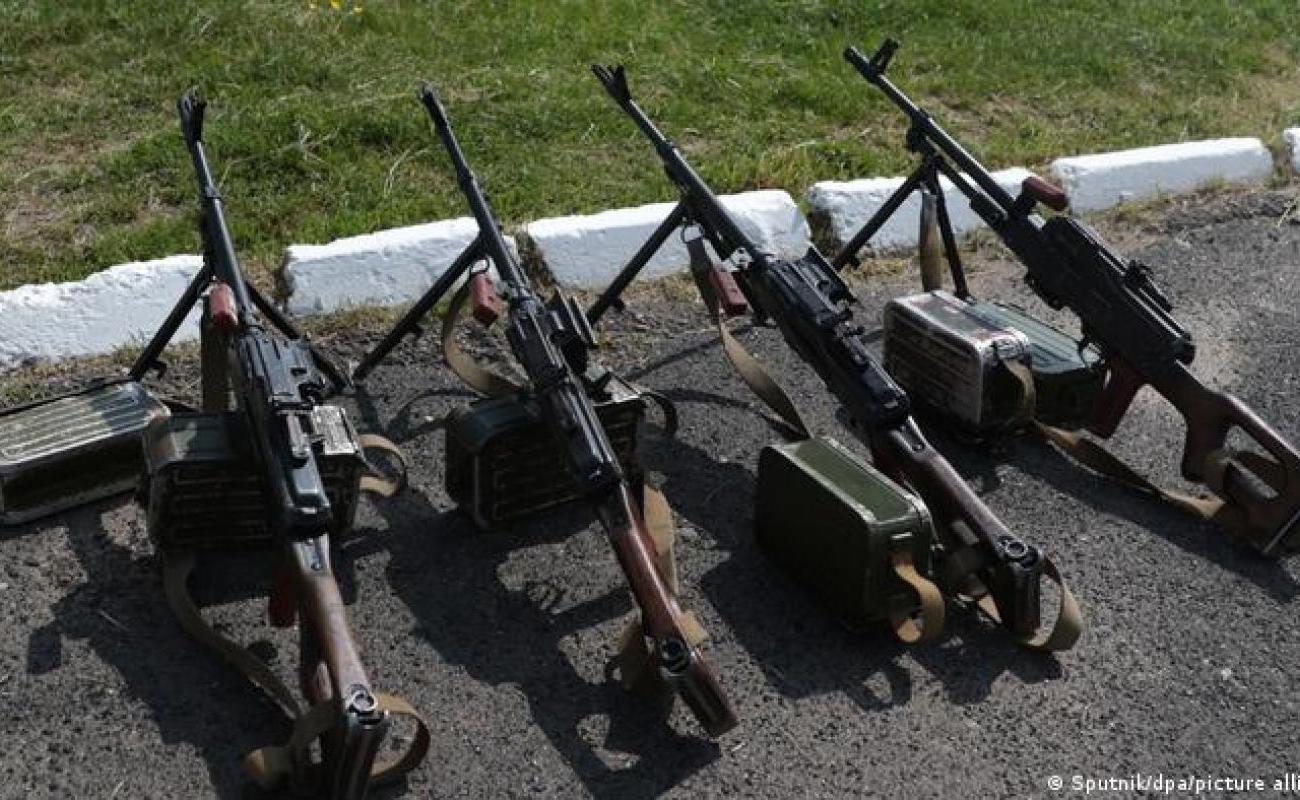
The prime minister said Russian troops are "continuing to chew through ground" in the Donbas region, making "slow, but I'm afraid palpable, progress."
Thousands of frontline Ukrainian troops are now using weapons and other equipment supplied by the UK.
The government says it is spending £1.3bn ($1.6bn) on military support for Ukraine.
So what exactly is being sent, and how much of a difference is it making?
The UK has sent more than 5,000 next generation light anti-tank weapons, or Nlaw, to Ukraine.
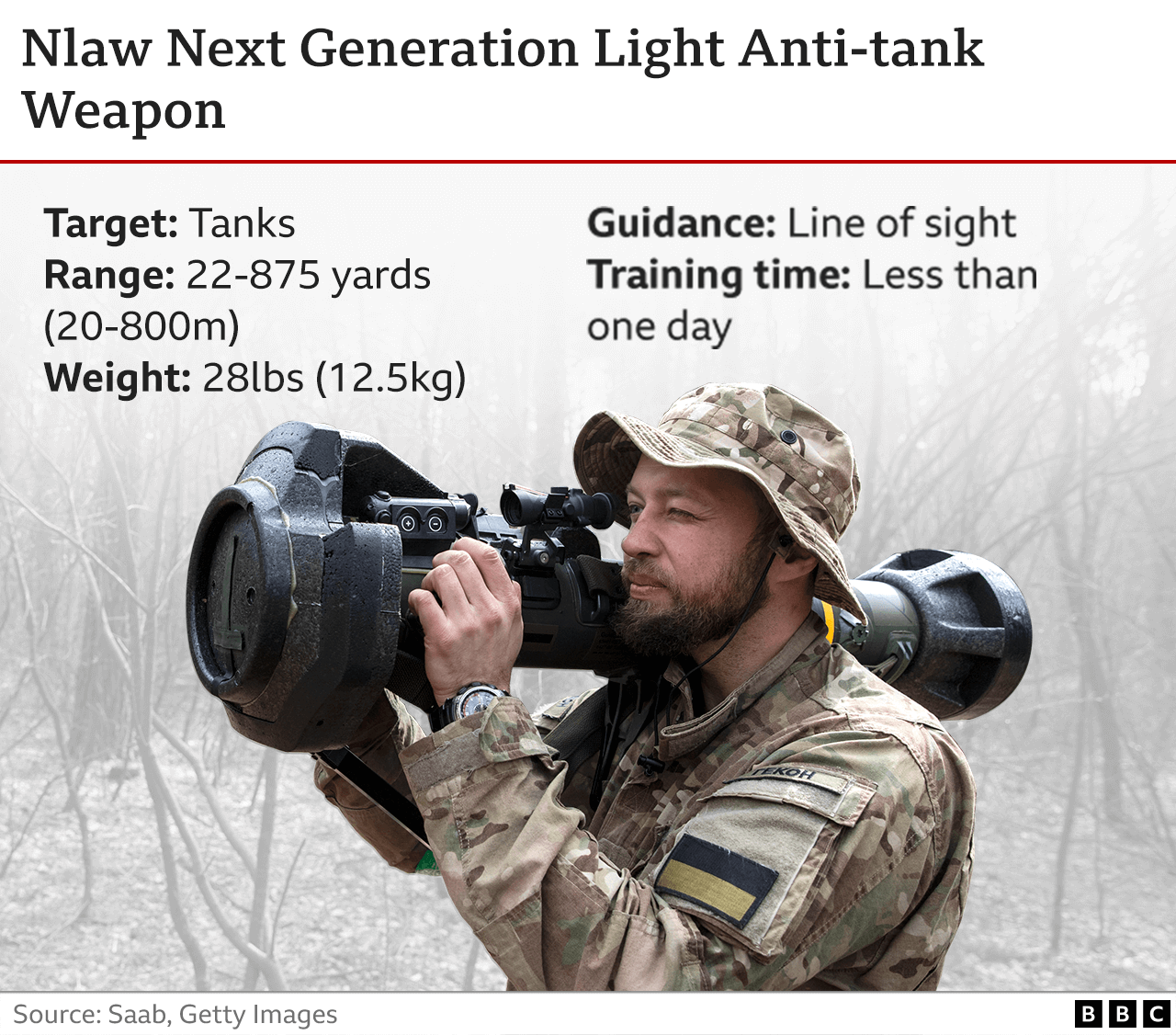
Nlaws are designed to destroy tanks at short range with a single shot.
Crucially for Ukraine's armed forces who need weapons immediately, the missiles are easy to transport and simple to use. A soldier can be trained to use them in less than a day.
Many analysts believe they have already had a major impact on the course of the conflict.
"Nlaw was absolutely critical to the defeat of Russian ground thrusts in the early stages of the war," says Justin Bronk, of the Royal United Services Institute.
The weapons have been "particularly effective" when used in combination with artillery, he says.
He points to successful strikes on tank columns, where Nlaws have destroyed the front vehicles, trapping those to the rear for targeting with artillery.
Defence Minister James Heappey confirmed that "hundreds" of Brimstone missiles would be sent to Ukraine on 28 April.
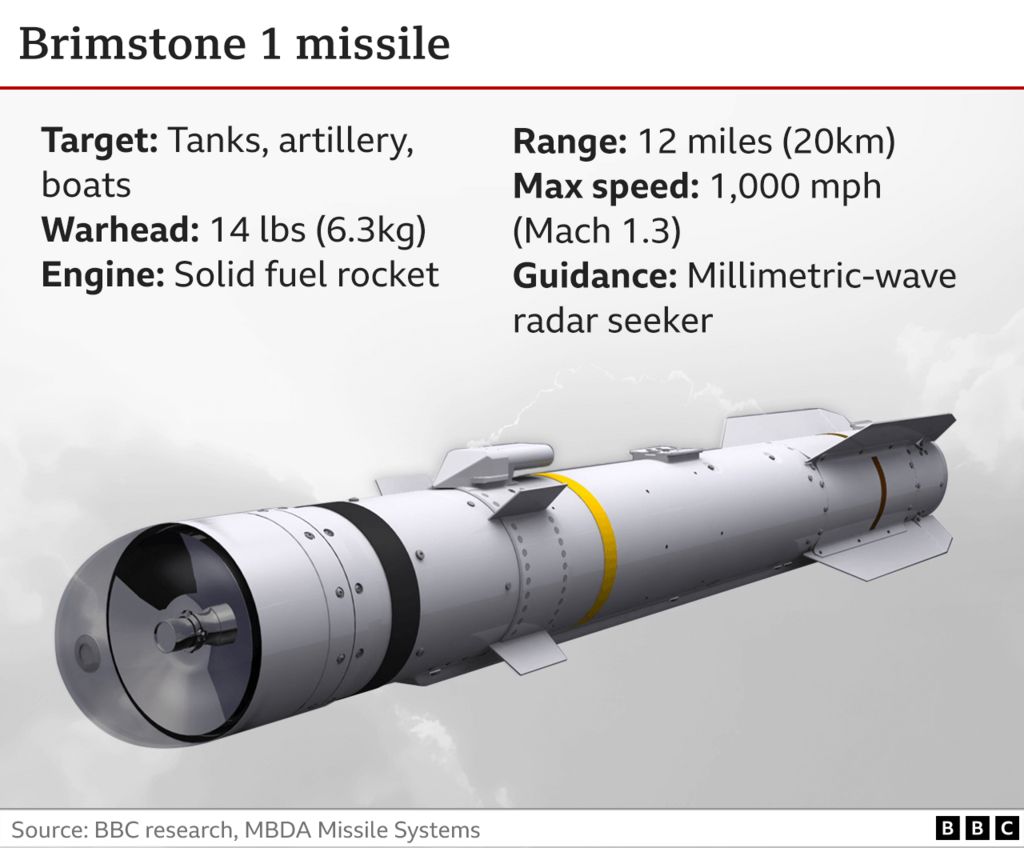
Brimstones can be used against tanks, artillery and some smaller vessels such as landing craft, according to Capt Chris Carlson, formerly of the US Navy.
The missiles are normally fired from aircraft, but in Ukraine they are being modified to be fired from trucks.
Launching them from the ground reduces their effective range, says Capt Carlson.
If used as anti-ship missiles, Brimstones are far too small to sink larger vessels, but could cause substantial damage.
"It all depends where you hit," he says. "If you went through an engine or near the water line, you could give an enemy some serious trouble."
Britain has donated 120 armoured vehicles to Ukraine, including Mastiff patrol vehicles.
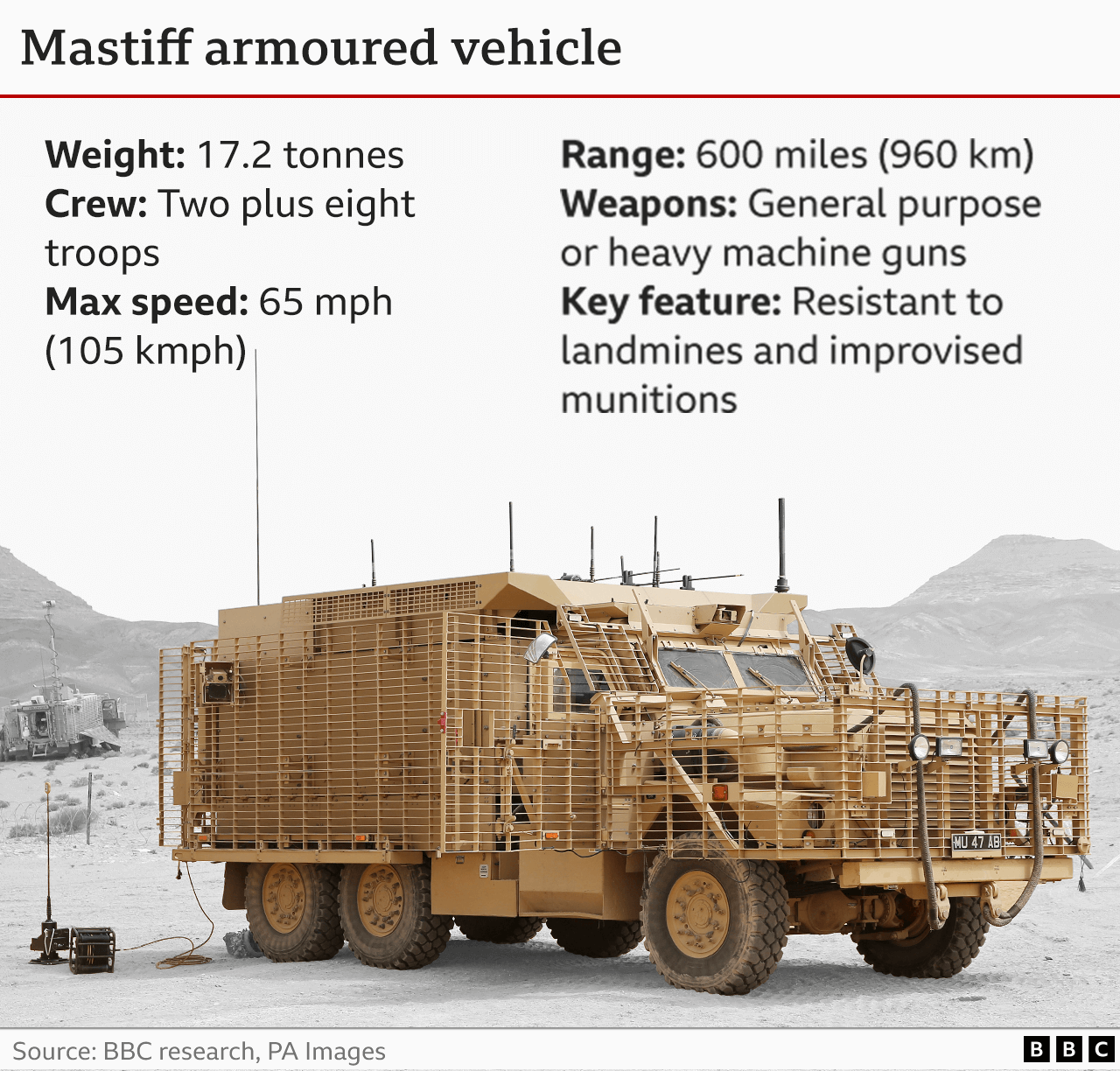
Mastiffs were very popular among British troops in Afghanistan as they provide a high level of protection against landmines and improvised explosive devices.
Analysts say that in an area which as been as heavily mined as the Donbas, Mastiffs are likely to be very useful.
It is understood that both sides in the conflict have used landmines extensively, often to force enemy vehicles into areas where they can be targeted with anti-tank weaponry.
War in Ukraine: More coverage
The Ministry of Defence says it is supplying "dozens" of heavy lift unmanned aerial vehicle (UAV) systems to provide logistical support to isolated forces.
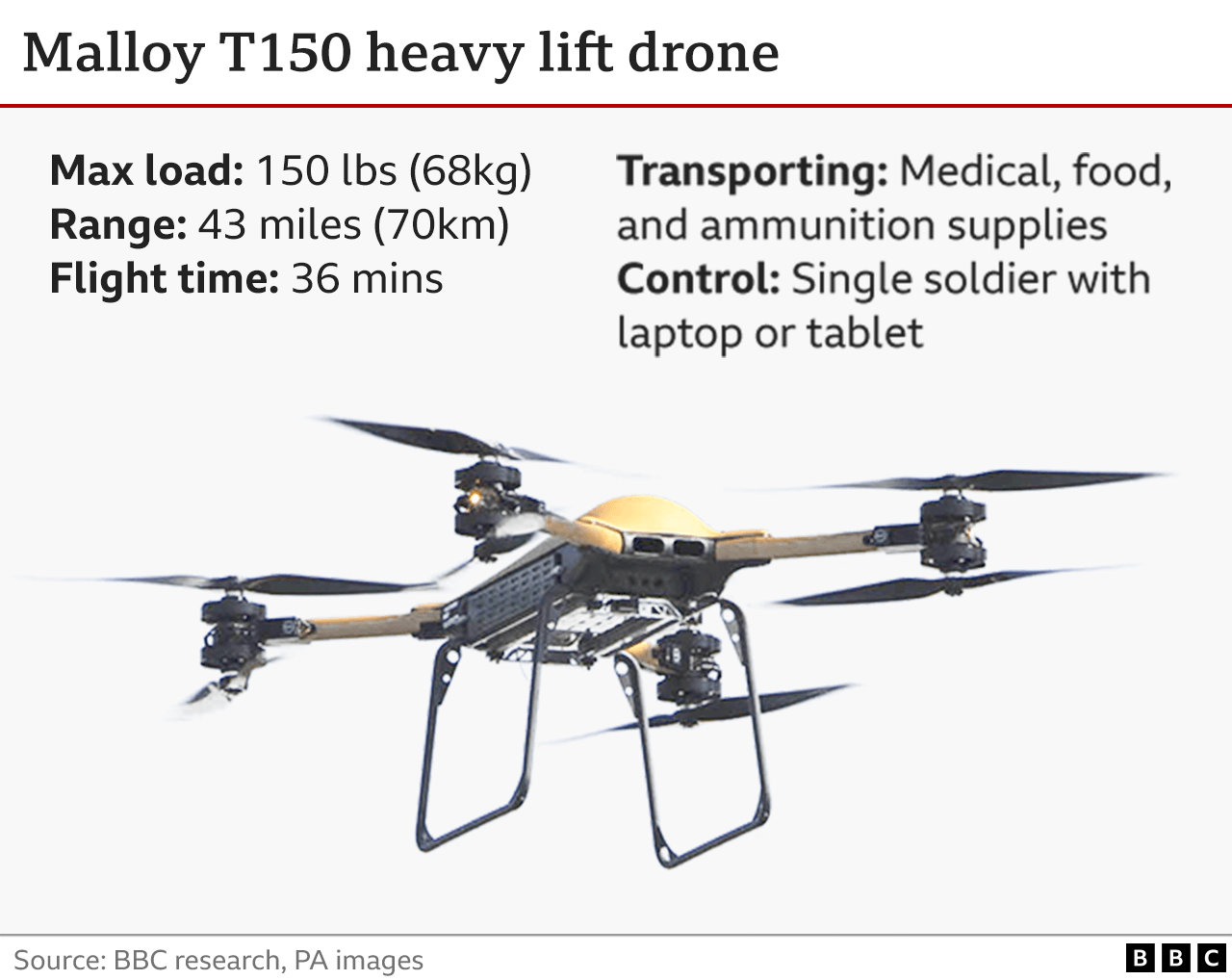
Analysts say that drones can be very effective in getting supplies over the "last mile" to front line troops, particularly under threat of Russian artillery fire and in situations where there is a risk of encirclement.
While Russia has so far failed to encircle large numbers of Ukrainian troops in eastern Ukraine, the threat of artillery fire in some areas is ever-present.
"It's the sheer quantity of stuff needed by troops," says Mr Bronk. "Every time you can use a drone instead of a soldier to get supplies forward is one less time someone is exposed to extreme danger."
Britain says it has donated five air defence systems, including Starstreak missiles.
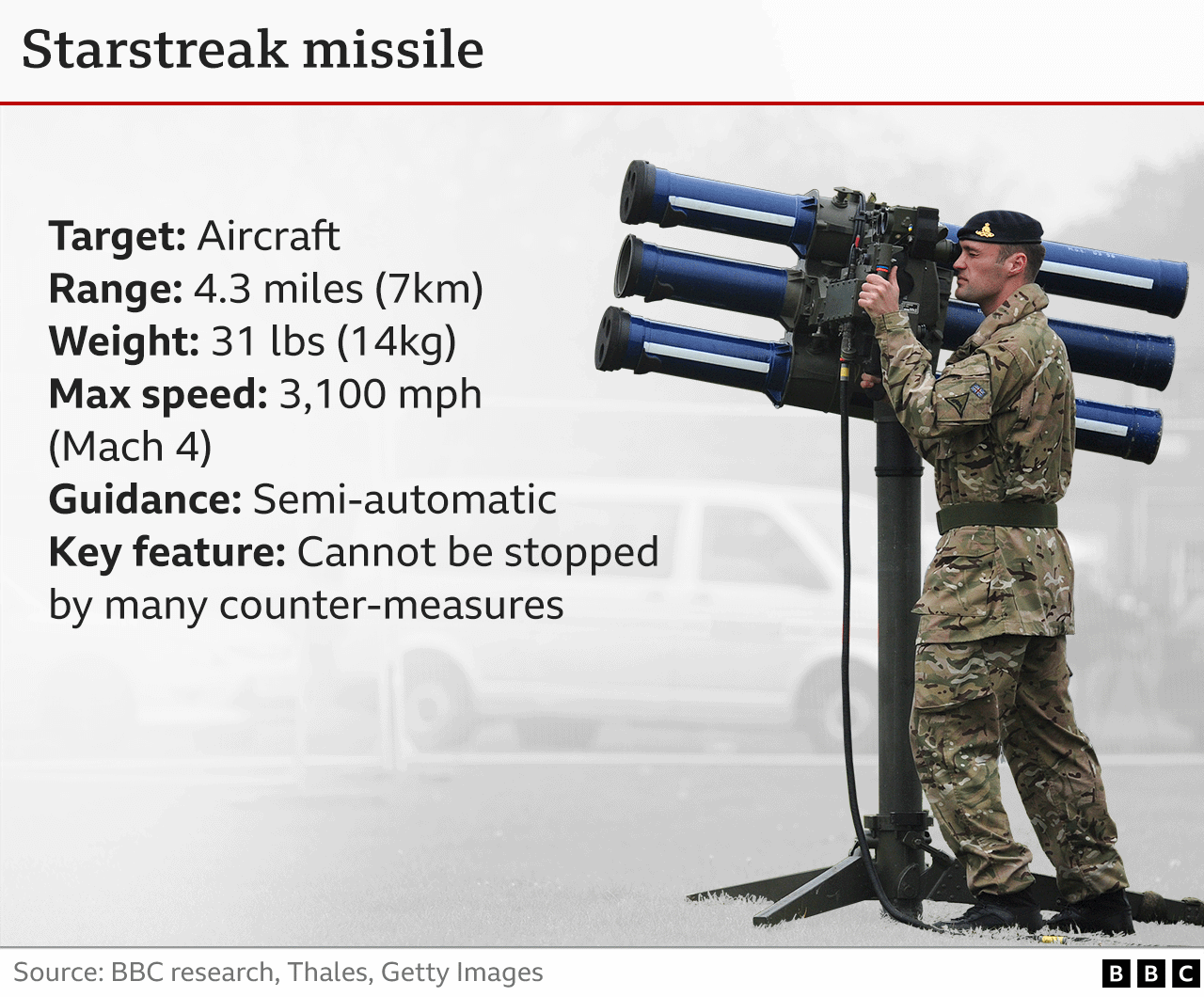
Starstreak is designed to bring down low-flying aircraft at short range.
It ignores counter-measures such as flares and chaff deployed by many aircraft.
"From a pilot's point of view, Starstreak is a very unpleasant thing," says Mr Bronk. "There's very little you can do about it."
He says Russian forces may deem some operations too risky if they are aware that a weapon as deadly as Starstreak is on the ground.
However, Starstreak requires much more training than systems such as Nlaw, and is no substitute, say analysts, for longer-range air defence systems.
Britain is also supplying a "small number" of tracked Stormer vehicles to act as a mobile platform for Starstreak missiles.
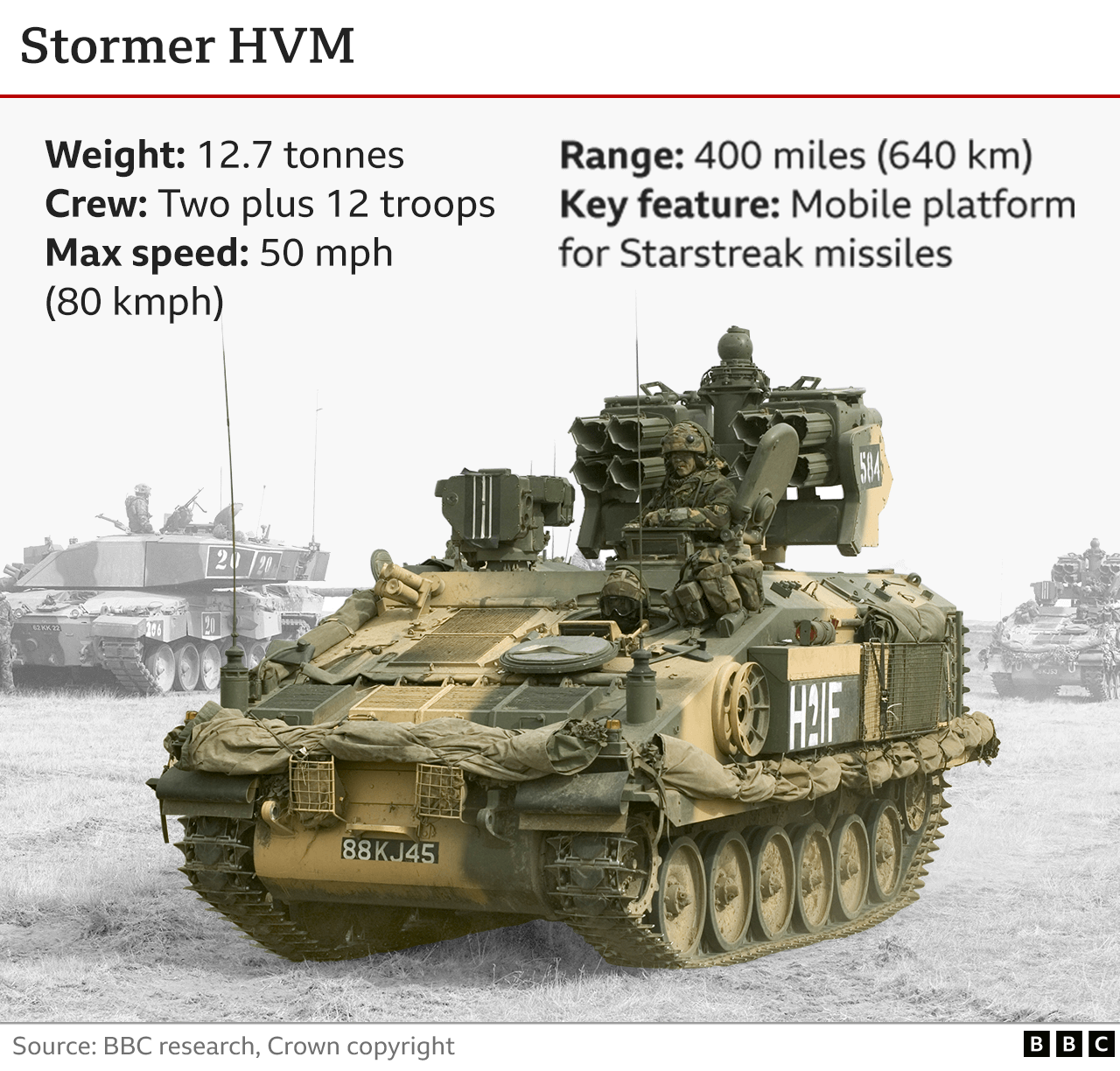
Sustaining supplies of Western equipment, weapons and ammunition will be extremely important to the Ukrainians in the longer term, according to retired Brig Ben Barry, of the International Institute of Strategic Studies.
He says that although Ukraine has some weapons manufacturing capacity of its own, it will be difficult for its troops to take significant territory back from Russian forces without substantial outside support.
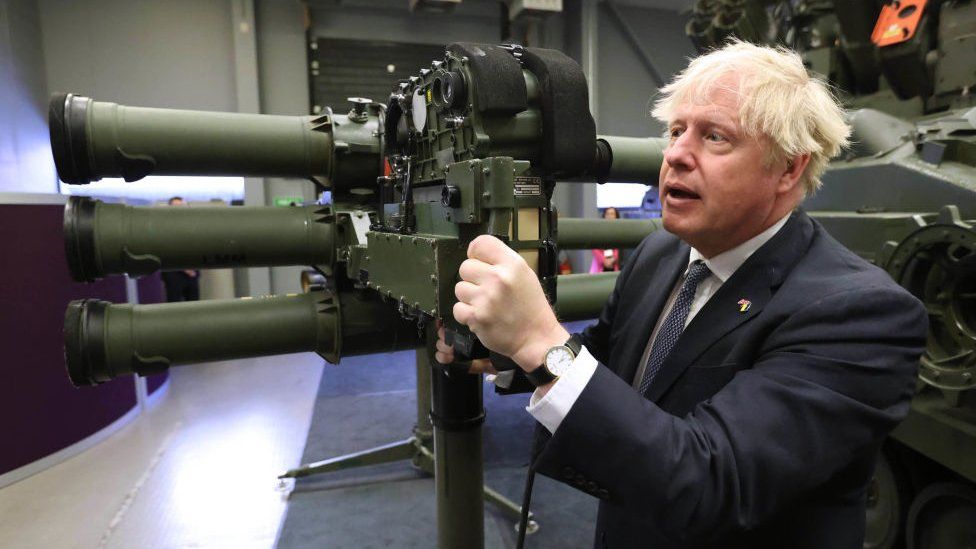 Image source, Getty Images
Image source, Getty ImagesMilitary professionals point out that Ukraine's need is largely for equipment which its troops already know how to use, or can be trained on very quickly.
Much of Ukraine's weaponry was designed and manufactured in former Warsaw Pact eastern European countries.
For this reason, the UK has offered to send British Challenger 2 tanks to Poland to backfill its donations of T-72 tanks to Ukraine.
Ukraine's armed forces have been using T-72s for decades and have maintenance and spare parts capabilities, in addition to trained crew.
In the days shortly before and after Russia's invasion of Ukraine, UK ministers insisted that supplies to Ukraine would be confined to "defensive" weapons.
That means weapons which can only be used to defend Ukraine from attack, and not to attack Russia.
The government has signalled that it is moving away from purely defensive supplies, but some experts question the whole distinction.
"There is no such thing as a purely defensive weapon," says Brig Barry. "Defensive weapons are also offensive, because they can defend equipment being used to mount an attack."
Other equipment supplied by the UK includes:
- More than 200 Javelin anti-tank missiles
- 1,360 anti-structure munitions
- 4.5 tonnes of plastic explosives
- More than 400,000 rounds of small-arms munitions
- More than 200,000 pieces of non-lethal aid including helmets, body armour, range finders and medical equipment
- Electronic warfare equipment
- Counter battery radar systems
- GPS jamming equipment
- Thousands of night vision devices
- Dozens of heavy lift UAV systems to provide logistical support to isolated forces
Graphics by Gerry Fletcher.
